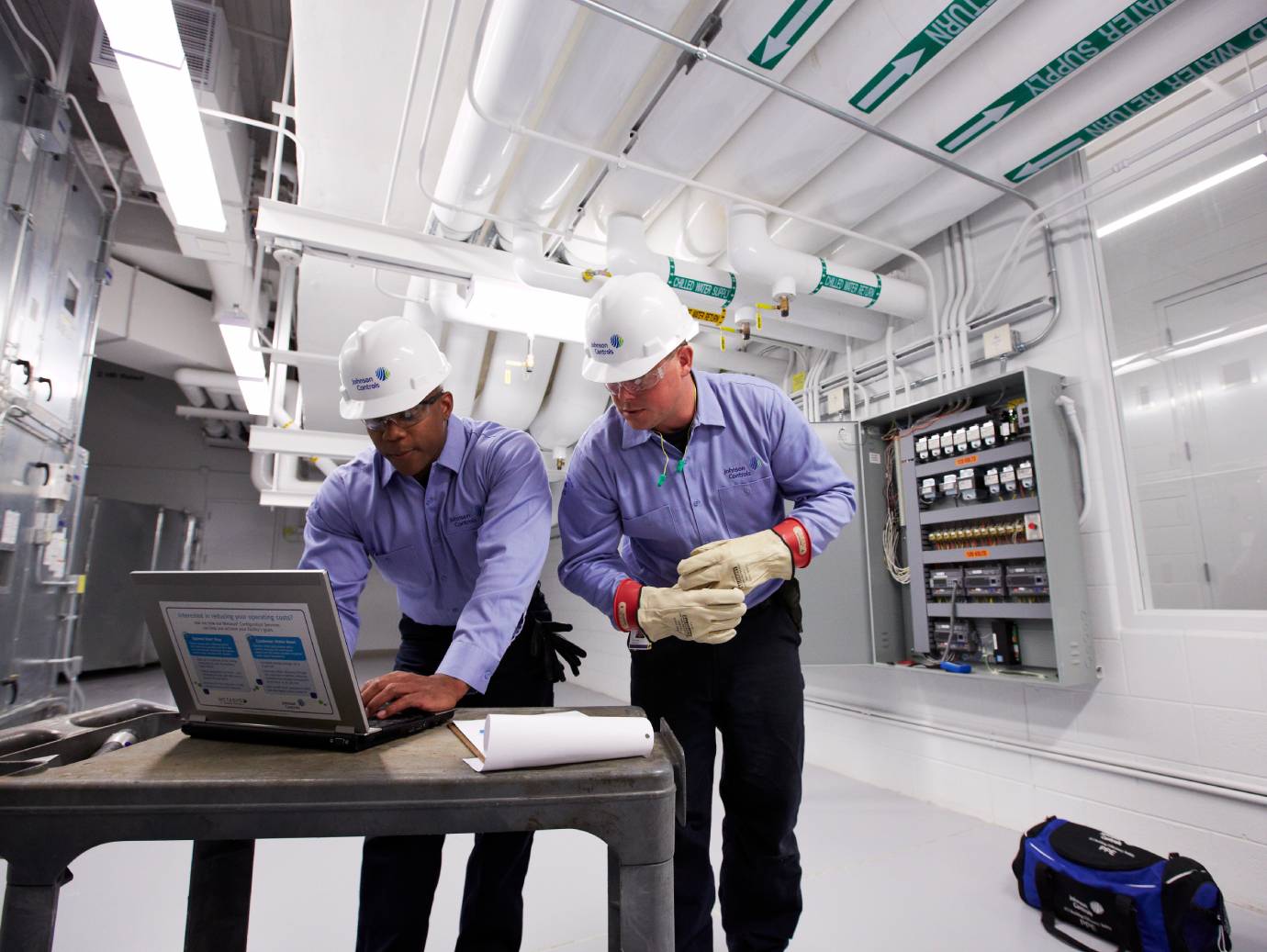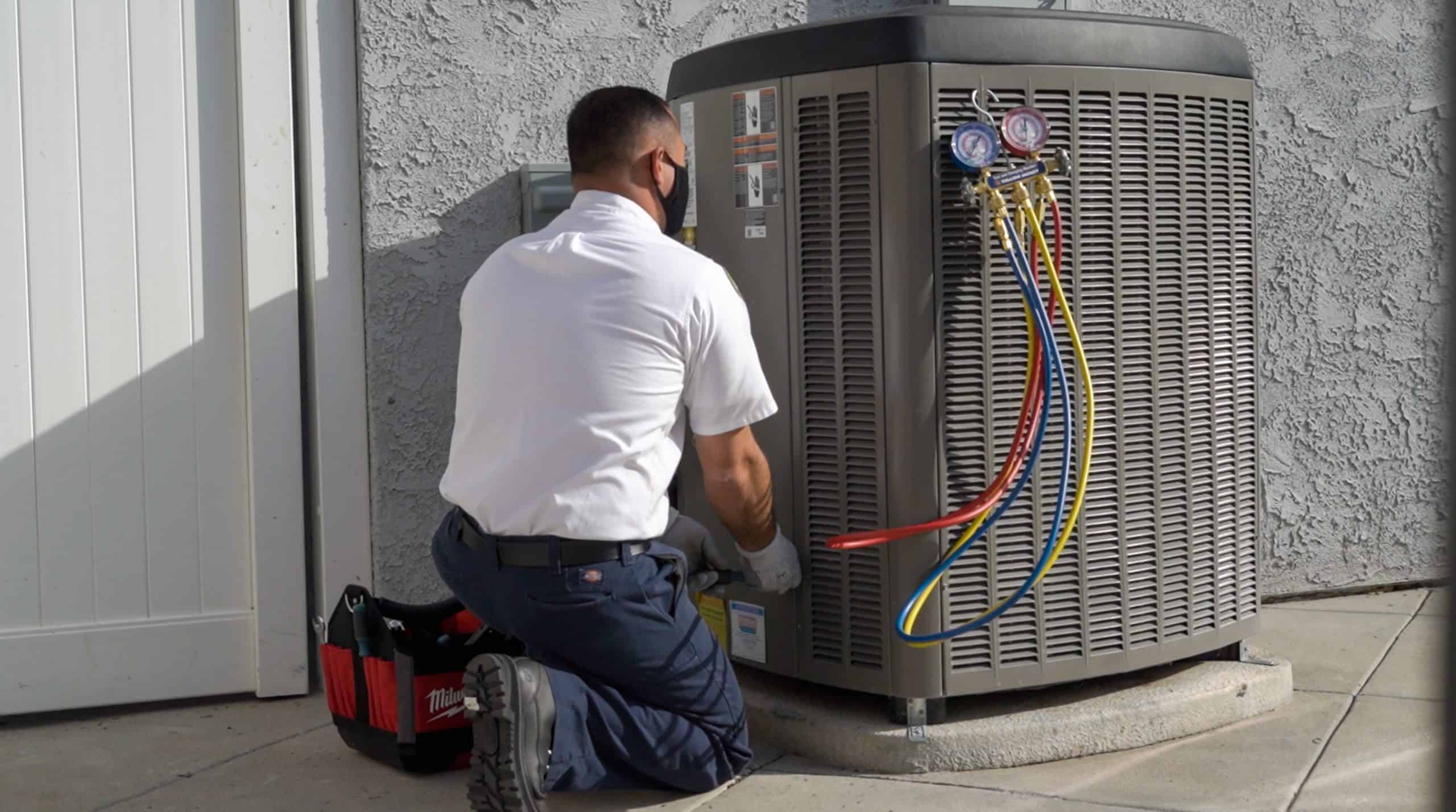Expert Tips for Effective Air Conditioning Installation Brownwood TX
Expert Tips for Effective Air Conditioning Installation Brownwood TX
Blog Article
Understanding A/c: A Comprehensive Guide to Home Heating, Ventilation, and Cooling Provider
In today's quickly advancing world, an essential understanding of Cooling and heating systems is no longer a luxury however a need for ensuring optimal indoor atmospheres. Commercial HVAC contractor in Brownwood TX. As we browse through the ins and outs of choosing the right system and maintaining it for peak performance, one starts to understand the extensive influence these systems have on power intake and sustainability.
Fundamentals of A/c Equipments
Home Heating, Ventilation, and Air Conditioning (HEATING AND COOLING) systems are critical components in modern style, continually guaranteeing ideal interior air top quality and thermal comfort. These systems are integral to keeping the health, performance, and well-being of owners in residential, business, and industrial settings. At their core, cooling and heating systems are made to manage the temperature, moisture, and tidiness of air, producing a comfy atmosphere no matter exterior weather condition problems.
The basic parts of a cooling and heating system include home heating systems, ventilation air ducts, and air conditioning devices. The heating component commonly includes either a heat or a heating system pump, which warms air to be distributed throughout the building. Ventilation, a crucial element of the system, includes the exchange of indoor and outdoor air, regulating and minimizing interior pollutants wetness degrees. This procedure can be naturally or mechanically promoted, frequently making use of fans and ductwork to distribute air effectively.

Choosing the Right Cooling And Heating System
Choosing a HVAC system entails a careful balance of effectiveness, price, and suitability to the certain needs of a structure. The choice procedure starts with an evaluation of the structure's size, design, and intended use. Bigger structures may require more robust systems, while domestic buildings might benefit from smaller sized, more energy-efficient models. It is important to take into consideration the environment of the area, as this will certainly affect the kind of system that ideal preserves comfy indoor temperatures throughout the year.
Energy efficiency rankings, such as SEER (Seasonal Energy Performance Ratio) for air conditioners and AFUE (Yearly Fuel Use Effectiveness) for furnaces, are critical elements when reviewing possible systems. Higher scores generally indicate much better efficiency and reduced operating expense with time. Additionally, possible buyers must contrast upfront prices with potential lasting savings to establish the most effective monetary choice.
One more essential consideration is the sort of system-- whether a central system, split system, or ductless mini-split is appropriate. Each offers unique benefits and limitations, depending on setup intricacy and room needs. Examination with HVAC experts is a good idea to ensure that the system chosen lines up with both the building's specs and the passengers' convenience choices.
Relevance of Normal Upkeep
When the ideal a/c system is picked and mounted, maintaining its performance and longevity comes to be a top priority. Normal upkeep is crucial for ensuring that the system runs at peak efficiency, decreasing the threat of unanticipated failures. Routine inspections and maintenance can identify potential issues before they escalate into pricey fixings or substitutes, consequently prolonging the life expectancy of the equipment.

In addition, sticking to a maintenance timetable can preserve the service warranty coverage, as lots of manufacturers need evidence of regular servicing to recognize warranty insurance claims. Involving expert cooling and heating service technicians for regular maintenance makes sure that all parts are evaluated accurately and changed as required. This proactive approach not just safeguards the financial investment in the heating and cooling system but additionally promotes a healthier interior environment for residents, improving total well-being.
Enhancing Energy Effectiveness
To improve power performance in HVAC systems, it is important to apply strategies that reduce energy usage while preserving optimal efficiency. One reliable strategy is the assimilation of smart thermostats, which allow exact control over temperature level setups based on occupancy and time of day. These devices can learn patterns and adjust home heating and cooling down timetables as necessary, minimizing unneeded energy use.
Another approach entails routine evaluation and cleaning of HVAC components, such as air filters, coils, and ductwork. Tidy systems operate much more successfully, as dirt and particles can block air flow and force the system to work harder, eating even more power. Ensuring correct insulation and securing is also vital, as it protects against power loss and decreases the lots on cooling and heating systems.
Moreover, upgrading to energy-efficient tools, such as variable-speed electric motors and high-efficiency compressors, can considerably cut power usage. These components readjust their speed and result to match the particular home heating or cooling need, stopping energy waste.
Investing in power recovery air flow systems can also improve efficiency by exchanging warmth between outgoing and inbound air streams, minimizing the need for extra home heating or cooling. By embracing these steps, HVAC systems can achieve premium energy effectiveness, leading to minimized functional costs and ecological influence.
Troubleshooting Common Issues
When attending to cooling and heating system malfunctions, an organized strategy to troubleshooting can successfully identify and solve usual issues. The primary step involves checking the thermostat setups to ensure they are right and operating. Often, inaccurate settings or dead batteries can create the system to act unevenly. Next off, examine the air filters. Stopped up or unclean filters limit air movement, lowering system performance and might bring about getting too hot or cold.
Evaluate the breaker and fuses; tripped breakers or blown integrates can stop system procedures. In addition, examine the outdoor unit for any obstructions or debris that could hinder performance. Regular upkeep of these parts can prevent many common problems.
Listen for uncommon sounds, which might suggest mechanical problems such as worn-out belts or motor problems. Unexplained increases hvac business in power bills can also signal underlying inefficiencies or leakages in ductwork. Make certain that all vents are open and unhampered to assist in ideal air flow.

Expert treatment ends up being necessary if these actions do not fix the concern, especially for intricate issues like cooling agent leaks or electric faults. Routine inspections and maintenance by qualified specialists can preemptively resolve prospective concerns, ensuring the a/c system runs efficiently and dependably.

Conclusion
In conclusion, a complete understanding of HVAC systems is vital for ensuring optimal indoor convenience and air top quality. Addressing typical concerns via effective troubleshooting further makes sure the trusted operation of Heating and cooling systems, profiting both home owners and businesses.
As we browse via the details of This Site selecting the right system and maintaining it for peak performance, one starts to understand the extensive impact these systems have on energy consumption and sustainability.Heating, Ventilation, and Air Conditioning (HVAC) systems are critical elements in contemporary design, regularly making sure ideal indoor air high residential heating and air quality and thermal comfort (air conditioning installation Brownwood TX).An additional vital consideration is the kind of system-- whether a central system, split system, or ductless mini-split is ideal. Clean systems operate much more efficiently, as dust and particles can obstruct airflow and compel the system to function harder, taking in more power.In final thought, a complete understanding of A/c systems is vital for making sure optimal interior convenience and air quality
Report this page